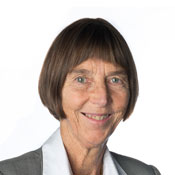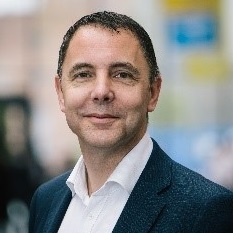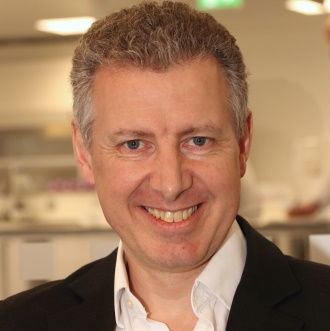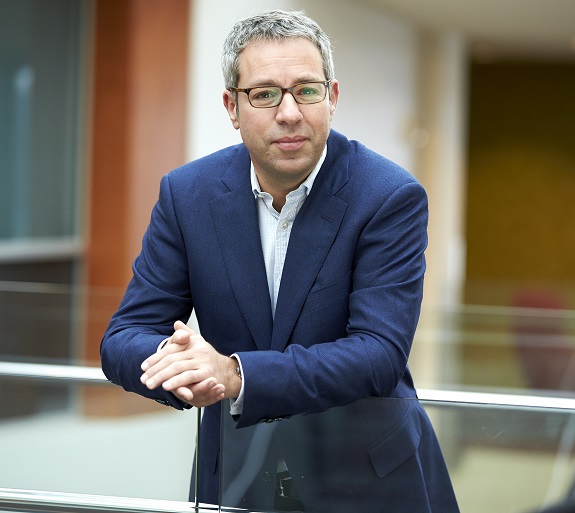Links to external sources may no longer work as intended. The content may not represent the latest thinking in this area or the Society’s current position on the topic.
The impact of COVID-19 on industry-academia collaborations

This meeting explored the effects of the COVID-19 pandemic on research translation practices and business-academia collaborations.
Read the conference report (PDF).
This online event explored the effects of the COVID-19 pandemic on research translation practices and business-academia collaborations. The main topics for discussion revolved around removing barriers to translation, reducing bureaucracy, recognising the need for urgency and establishing quick and efficient collaborations.
The meeting comprised a series of short talks followed by a panel discussion. The ultimate aim was to understand how practices and attitudes have changed during the pandemic, what the outcome of those changes was and to identify any lessons learned.
Schedule
| 15:00 - 15:05 |

Dame Sue Ion GBE FREng FRS

Dame Sue Ion GBE FREng FRSDame Sue Ion GBE FRS FREng is Hon President of the National Skills Academy for Nuclear. She was previously Chairman of the UK Nuclear Innovation Research Advisory Board (NIRAB). She represents the UK on a number of international review and oversight committees for the nuclear sector including the Euratom Science and Technology Committee which she chaired until late 2018. She was the only non-US member of the US Department of Energy’s Nuclear Energy Advisory Committee on which she has served from 2005-2020.She currently serves as a member of the Office of Nuclear Regulation Independent Advisory Panel. Sue spent 27 years with British Nuclear Fuels Ltd (BNFL) rising to the position of Chief Technology Officer in 1992, a post she held until 2006 when she assumed a number of mainly voluntary roles in Science and Engineering, including membership of the UK Council for Science and Technology and the Engineering and Physical Sciences Research Council (EPSRC). She was Vice President of the Royal Academy of Engineering 2002-2008 and chaired its MacRobert Committee 2013-2019. Sue was Deputy Chair of the Board of the University of Manchester until September 2018 and currently serves on the Board of the University of Central Lancashire. Her core expertise is in materials science and engineering associated with the nuclear sector. Sue is a member of the Chief Scientific Advisor for Wales’s Science and Innovation Advisory Council. She has been a Visiting Professor in the Department of Materials at Imperial College since 2006, holds an Honorary Professorship at the University of Manchester and is now Chair of the Royal Society Science, Industry and Translation Committee. |
|---|
| 15:05 - 15:15 |
In response to the government Ventilator Challenge, UCL worked with a wide range of private and public sector partners including Mercedes-AMG HPP and doctors from University College Hospital to develop and bring to market the UCL Ventura, a continuous positive airway pressure (CPAP) device that is now in use in 115 NHS hospitals, with the designs downloaded by 105 countries worldwide and devices being manufactured and tested in over 30 countries including Australia, Brazil, Ecuador, Germany, Iran, Mexico, Peru, Pakistan, South Africa and the USA, among other places. The key elements to this success will be discussed. 
Dr Celia Caulcott, Vice-Provost (Enterprise), UCL

Dr Celia Caulcott, Vice-Provost (Enterprise), UCLCelia Caulcott is Vice-Provost (Enterprise) at UCL. Following degrees in microbiology she joined the biopharmaceutical industry where she worked on and led research on the production of therapeutic recombinant monoclonal antibodies. Subsequently she worked on a variety of government projects and for the Wellcome Trust on the Human Genome Project. She joined the Biotechnology and Biological Sciences Research Council (BBSRC) in 2008 and moved to UCL in 2015. At BBSRC she developed and led the innovation strategy, widening engagement with agriculture, food and other bioscience-using businesses in the UK, emphasising the importance of bioscience research and innovation in contributing benefit to society and the economy. At UCL, Celia leads the cross-university Innovation and Enterprise Strategy. The focus is on widening the university approach to innovation and enterprise, drawing in all disciplines and seeking the widest possible benefit to society and the economy. This is supported by developing UCL strategic approaches to working with innovation partners, supporting entrepreneurship for students and alumni, translating research outputs to application and developing the UCL culture of innovation and enterprise. |
|---|
| 15:15 - 15:25 |
In March this year, Government set industry a challenge - to turn UK supply chains to critical ventilator production - quickly. VentilatorChallengeUK (VCUK), a consortium of cross-sector engineering businesses formed around the High Value Manufacturing Catapult, responded and produced thousands of mechanical ventilators for the NHS. Egoless collaboration, meritocracy and technology all played their part. Digital twins, Simulation and Virtual Reality helped remote working engineers to create new production facilities and processes at record pace. Hundreds of operators were trained through innovative digital aids. GKN, Airbus, Ford, McLaren, Siemens and Rolls Royce were amongst the firms who contributed resources and expertise. Brian will provide a brief introduction to VCUK and an insight to his team’s experience of working with Airbus to produce key sub assemblies in shortened timescales. He will also touch on an integrated Hackathon that enabled a significant manufacturing calibration challenge to be solved in just 4 days by early career professionals and will speculate on some of the resultant lessons learned. 
Brian Holliday CEng FIET, Managing Director - Siemens Digital Industries

Brian Holliday CEng FIET, Managing Director - Siemens Digital IndustriesBrian Holliday is a member of the Senior Leadership Team of Siemens plc and Managing Director for Siemens Digital Industries, which serves the manufacturing and infrastructure sectors. He is also Chairman of Siemens Industry Software UK. He holds board memberships for the High Value Manufacturing Catapult and Make UK, the Manufacturers’ Organisation, and has contributed to Parliamentary Select Committees on the topics of Education and Industry 4.0. He is a member of the Royal Society’s Science, Industry and Translation Committee. A Chartered Engineer and Fellow of the Institution of Engineering and Technology, Brian started his career with Texas Instruments and went on to read Computer Systems at Cardiff University before joining Siemens, the global leader in electrification, automation and digitalisation in 1993. He attained his Executive MBA at Manchester Business School in 2000 and in 2014 became a graduate of the CBI’s Executive Leadership Programme. |
|---|
| 15:25 - 15:35 |
The Lighthouse Lab network was established at a time of intense national crisis and scrutiny. It reflected the very best of the UK’s ability to co-operate, nationalise and adapt. Its simple mission and purpose attracted skills, assets and intense commitment from across the nation including an army of skilled volunteers, loaned capital assets and instinctive assistance from clinical, regulatory and logistics. As we move through phases of the pandemic the national expansion of the lighthouse facilities and adoption of new private and public sector solutions for different use cases, the lessons forged in phase 1 are being applied and the UK has a foundation for a stronger future in diagnostics. 
Professor Chris Molloy, CEO, Medicines Discovery Catapult

Professor Chris Molloy, CEO, Medicines Discovery CatapultChris Molloy has a 30-year international board and executive career across a unique range of life sciences R&D disciplines. His career began in preclinical research at Glaxo, where he was closely involved with the industrialisation of high throughput discovery. In 2004 he moved to Asia as COO of MerLion Pharmaceuticals, a Singaporean biotech that developed into an award-winning multinational anti-infectives R&D biotech. Chris then ran corporate development for the global informatics firm, idbs during which time it won a Queens Award for Enterprise, became a Fast-track 100 company, and the first UK firm to develop a stratified medicine software platform using real-world health data. Chris spent three years as CEO of the RSA Group, the global life science executive search specialist, before in 2016 becoming the founding CEO of the Medicines Discovery Catapult: the national centre for innovation in drug discovery. During its first five years the MDC has leveraged its Innovate UK grant by fourfold, worked with over 150 UK companies and assisted the discovery of UK drug assets worth over £1bn. During the pandemic Chris was the founding Director of the Lighthouse Labs - the largest diagnostics project in UK history - and chaired the industry-governmental consortium that increased UK lateral flow manufacturing capacity by twenty-fold. Chris is the non-executive chairman of Thriva – a pioneer in at-home diagnostics; Exploristics and NorthWest EHealth: two UK tech companies using Real World healthcare data to improve clinical development. He chairs the IP Advisory Committee for the Association of Medical Research Charities and the Industry Advisory Board for Manchester’s Biomedical Research Centre & Health Innovation Manchester. Chris is a Member of the Institute of Cancer Research and holds an honorary chair at the University of Manchester. |
|---|
|
As the UK entered into 2020 many thought that there was little capability in the UK to create and industrialise vaccines. They were wrong. Through collaboration between Academia, Industry and Government robust supply chains were created for the Oxford/AZ vaccine and technology developed for the Imperial RNA vaccine. This short presentation will explain how the amazing BIA community rallied together to build these supply chains and evolved to become a significant part of the UK Vaccines Task Force. 
Ian McCubbin OBE: BIA Expert Advisory Group Lead advising the UKG Vaccines Task Force, Chairman RoslinCT

Ian McCubbin OBE: BIA Expert Advisory Group Lead advising the UKG Vaccines Task Force, Chairman RoslinCTIan currently leads the Manufacturing elements of the UKG Vaccines Task Force, which was formed earlier in 2020 and is lead by Kate Bingham. In this project role he has been working with a group of Industry professionals formed out of the vibrant BIA community. This group has been assisting the UK efforts to deliver a vaccine to the UK population. Ian is also chair of RoslinCT, a cell therapy CDMO based in Edinburgh, and a Director of Keirbridge Ltd, an independent pharmaceutical consultancy. He retired from his role as SVP Global Pharma Supply Chain within GlaxoSmithKline plc (GSK) in April 2017. Since then he has built a portfolio career mainly around cell and gene therapy which is his passion because of the transformational health benefits, the emerging science and the potential to positively influence the UK economy. He currently chairs the Manufacturing Advisory Group for the UKRI Life Science Industrial challenge fund. |
| 15:45 - 15:55 |
The rate of change across healthcare is more rapid than ever before and although this year has been challenging, it has forced us to think progressively about how we enable and execute the discovery and development of the next wave of life-changing medicines to patients. AstraZeneca has rapidly mobilised its research efforts to combat COVID-19 in response to the global pandemic. Our internal experts are joining forces with international health authorities, governments, academia and industry peers to accelerate the development of medicines to prevent or treat the infection, to boost diagnostic testing, and to help protect healthcare workers on the frontline. Through our scientific expertise in infectious disease and proprietary antibody discovery technology, we are developing a long-acting antibody combination, AZD7442 as a potential treatment and prevention of COVID-19 disease. Then in April, we announced a landmark agreement with the University of Oxford for the global development and supply of a potential COVID-19 vaccine, AZD1222. Late-stage clinical development of AZD1222 is progressing globally, enrolling up to 50,000 participants and so far, we have built global capacity to supply towards three billion doses, building a number of supply chains in parallel across the world. Alongside our focus to find new and preventative treatment approaches towards COVID-19, we are also accelerating the development of our diagnostic testing capabilities and in the UK, we formed a collaboration with GSK and the University of Cambridge to support the government’s national effort to boost COVID-19 testing. Together, we set up a new testing laboratory in 5 weeks – an operation that would usually take six months. With the COVID-19 pandemic claiming thousands of lives daily, defeating COVID-19 requires a collective effort from everyone working in healthcare and we are committed to playing our part. 
Sir Menelas (Mene) Pangalos PhD FRSB FMedSci, Executive Vice President & President BioPharmaceuticals R&D, AstraZeneca

Sir Menelas (Mene) Pangalos PhD FRSB FMedSci, Executive Vice President & President BioPharmaceuticals R&D, AstraZenecaMene was appointed as Executive Vice-President, R&D BioPharmaceuticals in January 2019 and is responsible for BioPharmaceutical R&D from discovery through to late-stage development covering Cardiovascular, Renal, Metabolism, Respiratory, Inflammation, Autoimmune, Microbial Science and Neuroscience areas. Prior to this, he served as Executive Vice-President of AstraZeneca’s IMED Biotech Unit and Global Business Development. Since joining AstraZeneca in 2010, Mene has led the transformation of R&D productivity through the development and implementation of the “5R” framework resulting in a greater than four-fold increase in success rates compared to industry averages. In parallel, he has championed an open approach to working with academic and other external partners, changing the nature of academic-industry collaboration. Mene previously held senior R&D roles at Wyeth and GSK. Mene holds Honorary Doctorates from Glasgow University and Imperial College, London, is a Fellow of the Academy of Medical Sciences, the Royal Society of Biology and Clare Hall, University of Cambridge. He sits on the Council of the MRC, co-chairs the UK Life Sciences Council Expert Group on Innovation, Clinical Research and Data and is a member of the Life Sciences Industrial Strategy Implementation Board. He is also on the Boards of The Francis Crick Institute, The Judge Business School, Cambridge University and Dizal Pharma. Mene was awarded the 2019 Prix Galien Medal, Greece for his scientific research and named Executive of the Year at the 2019 Scrip Awards. Most recently, Mene was awarded the honour of a Knighthood by Her Majesty The Queen for his services to UK science. Mene also oversees the creation of AstraZeneca’s new Global R&D Centre in Cambridge – a state of the art facility designed to stimulate collaborative scientific innovation and which will play an important role in the future success of the UK life science industry. |
|---|
Chair

Dame Sue Ion GBE FREng FRS

Dame Sue Ion GBE FREng FRS
Dame Sue Ion GBE FRS FREng is Hon President of the National Skills Academy for Nuclear. She was previously Chairman of the UK Nuclear Innovation Research Advisory Board (NIRAB). She represents the UK on a number of international review and oversight committees for the nuclear sector including the Euratom Science and Technology Committee which she chaired until late 2018. She was the only non-US member of the US Department of Energy’s Nuclear Energy Advisory Committee on which she has served from 2005-2020.She currently serves as a member of the Office of Nuclear Regulation Independent Advisory Panel.
Sue spent 27 years with British Nuclear Fuels Ltd (BNFL) rising to the position of Chief Technology Officer in 1992, a post she held until 2006 when she assumed a number of mainly voluntary roles in Science and Engineering, including membership of the UK Council for Science and Technology and the Engineering and Physical Sciences Research Council (EPSRC). She was Vice President of the Royal Academy of Engineering 2002-2008 and chaired its MacRobert Committee 2013-2019. Sue was Deputy Chair of the Board of the University of Manchester until September 2018 and currently serves on the Board of the University of Central Lancashire.
Her core expertise is in materials science and engineering associated with the nuclear sector. Sue is a member of the Chief Scientific Advisor for Wales’s Science and Innovation Advisory Council. She has been a Visiting Professor in the Department of Materials at Imperial College since 2006, holds an Honorary Professorship at the University of Manchester and is now Chair of the Royal Society Science, Industry and Translation Committee.
| 16:00 - 17:00 |
How did research translation practices and attitudes change during the pandemic and what was the outcome of those changes

Professor Chris Molloy, CEO, Medicines Discovery Catapult

Professor Chris Molloy, CEO, Medicines Discovery CatapultChris Molloy has a 30-year international board and executive career across a unique range of life sciences R&D disciplines. His career began in preclinical research at Glaxo, where he was closely involved with the industrialisation of high throughput discovery. In 2004 he moved to Asia as COO of MerLion Pharmaceuticals, a Singaporean biotech that developed into an award-winning multinational anti-infectives R&D biotech. Chris then ran corporate development for the global informatics firm, idbs during which time it won a Queens Award for Enterprise, became a Fast-track 100 company, and the first UK firm to develop a stratified medicine software platform using real-world health data. Chris spent three years as CEO of the RSA Group, the global life science executive search specialist, before in 2016 becoming the founding CEO of the Medicines Discovery Catapult: the national centre for innovation in drug discovery. During its first five years the MDC has leveraged its Innovate UK grant by fourfold, worked with over 150 UK companies and assisted the discovery of UK drug assets worth over £1bn. During the pandemic Chris was the founding Director of the Lighthouse Labs - the largest diagnostics project in UK history - and chaired the industry-governmental consortium that increased UK lateral flow manufacturing capacity by twenty-fold. Chris is the non-executive chairman of Thriva – a pioneer in at-home diagnostics; Exploristics and NorthWest EHealth: two UK tech companies using Real World healthcare data to improve clinical development. He chairs the IP Advisory Committee for the Association of Medical Research Charities and the Industry Advisory Board for Manchester’s Biomedical Research Centre & Health Innovation Manchester. Chris is a Member of the Institute of Cancer Research and holds an honorary chair at the University of Manchester. 
Brian Holliday CEng FIET, Managing Director - Siemens Digital Industries

Brian Holliday CEng FIET, Managing Director - Siemens Digital IndustriesBrian Holliday is a member of the Senior Leadership Team of Siemens plc and Managing Director for Siemens Digital Industries, which serves the manufacturing and infrastructure sectors. He is also Chairman of Siemens Industry Software UK. He holds board memberships for the High Value Manufacturing Catapult and Make UK, the Manufacturers’ Organisation, and has contributed to Parliamentary Select Committees on the topics of Education and Industry 4.0. He is a member of the Royal Society’s Science, Industry and Translation Committee. A Chartered Engineer and Fellow of the Institution of Engineering and Technology, Brian started his career with Texas Instruments and went on to read Computer Systems at Cardiff University before joining Siemens, the global leader in electrification, automation and digitalisation in 1993. He attained his Executive MBA at Manchester Business School in 2000 and in 2014 became a graduate of the CBI’s Executive Leadership Programme. 
Sir Menelas (Mene) Pangalos PhD FRSB FMedSci, Executive Vice President & President BioPharmaceuticals R&D, AstraZeneca

Sir Menelas (Mene) Pangalos PhD FRSB FMedSci, Executive Vice President & President BioPharmaceuticals R&D, AstraZenecaMene was appointed as Executive Vice-President, R&D BioPharmaceuticals in January 2019 and is responsible for BioPharmaceutical R&D from discovery through to late-stage development covering Cardiovascular, Renal, Metabolism, Respiratory, Inflammation, Autoimmune, Microbial Science and Neuroscience areas. Prior to this, he served as Executive Vice-President of AstraZeneca’s IMED Biotech Unit and Global Business Development. Since joining AstraZeneca in 2010, Mene has led the transformation of R&D productivity through the development and implementation of the “5R” framework resulting in a greater than four-fold increase in success rates compared to industry averages. In parallel, he has championed an open approach to working with academic and other external partners, changing the nature of academic-industry collaboration. Mene previously held senior R&D roles at Wyeth and GSK. Mene holds Honorary Doctorates from Glasgow University and Imperial College, London, is a Fellow of the Academy of Medical Sciences, the Royal Society of Biology and Clare Hall, University of Cambridge. He sits on the Council of the MRC, co-chairs the UK Life Sciences Council Expert Group on Innovation, Clinical Research and Data and is a member of the Life Sciences Industrial Strategy Implementation Board. He is also on the Boards of The Francis Crick Institute, The Judge Business School, Cambridge University and Dizal Pharma. Mene was awarded the 2019 Prix Galien Medal, Greece for his scientific research and named Executive of the Year at the 2019 Scrip Awards. Most recently, Mene was awarded the honour of a Knighthood by Her Majesty The Queen for his services to UK science. Mene also oversees the creation of AstraZeneca’s new Global R&D Centre in Cambridge – a state of the art facility designed to stimulate collaborative scientific innovation and which will play an important role in the future success of the UK life science industry. 
Dr Michael Reynier, Principal Partnerships Manager (Public Sector & the Professions), Business Innovation Partnerships, UCL Innovation & Enterprise

Dr Michael Reynier, Principal Partnerships Manager (Public Sector & the Professions), Business Innovation Partnerships, UCL Innovation & EnterpriseMichael leads on business innovation partnerships between UCL and the public sector and the professions. He’s responsible for developing and implementing overarching partnership strategies for key public sector and profession stakeholders such as the Greater London Authority (GLA), local authorities and professional and membership associations such as London First, the CBI and the Knowledge Quarter. |
|---|
